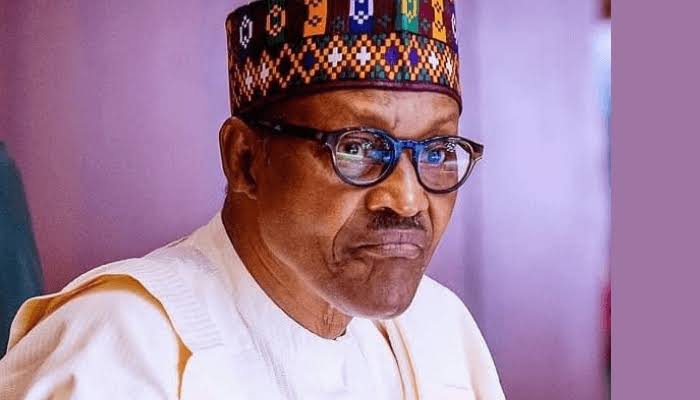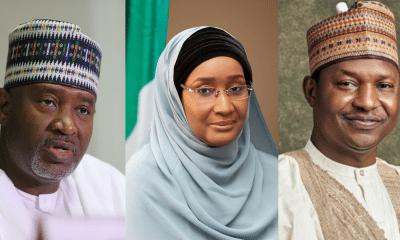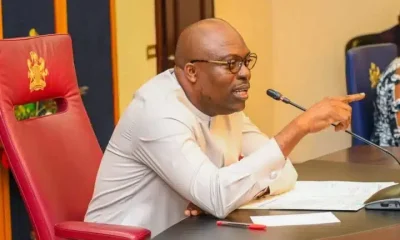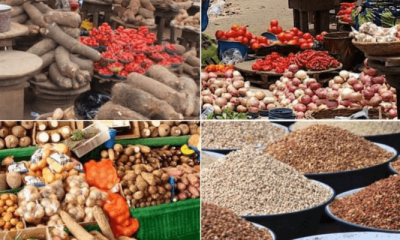Business
36 States Share N9.3 Trillion In Three Years Under Buhari’s Govt

Data released recently by the National Bureau of Statistics (NBS) has highlighted how 36 states of the federation shared N9.3 trillion as federal allocation in three years.
The period under review is between June 2019 and December 2022, Naija News reports.
Data from 43 monthly reports of the Federation Accounts Allocation Committee (FAAC), covered parts of President Muhammadu Buhari’s second tenure. As revealed in the document, Delta State gulp the highest allocation amongst its equals while Akwa Ibom and Rivers states followed.
Delta State received the sum of N843.8bn, Akwa Ibom got N643.2bn, while Rivers got about N642bn within the period under review.
It was observed that Sokoto State got the leased allocation during the three years and seven months period, as it received N119.1bn. Osun State followed with the second least allocation of N126.4bn while Cross Rivers got the third lowest allocation summed at N141.71bn in 43 months.
Federal Allocation received by other states goes thus: Abia, Adamawa, Anambra, Bauchi and Bayelsa received about N188.75bn, N221.86bn, N204.54bn, N200.5bn and N543.6bn, respectively.
Benue, Borno, Ebonyi, Edo, Ekiti, Enugu and Gombe received N192bn, N233.9bn, N171.3bn, N247.5bn, N148.4bn, N196.3bn and N156.6bn, respectively.
For Imo, Jigawa, Kaduna, Kano, Katsina, Kebbi, Kogi, Kwara and Lagos states, their various FAAC allocations during the period under review were N215.96bn, N223.7bn, N242.5bn, N308.4bn, N233.7bn, N204.3bn, N193.3bn, N154.1bn and N457.4bn respectively.
The remaining states of Nasarawa, Niger, Ogun, Ondo, Oyo, Plateau, Taraba, Yobe and Zamfara received allocations of N179.5bn, N189bn, N147.8bn, N202.8bn, N225bn, N149.7bn, N267.9bn, N184.3bn and N167.3bn respectively.
It was observed that the states shared about N1.47tn from June to December 2019, while in 2020, they shared a total of about N2.29tn.
Naija News understands that in 2021, the 36 states of the federation, excluding the Federal Capital Territory, shared about N2.35tn, while in 2022, the FAAC disbursed about N3.16tn to the states. This brings the total allocation shared by the states during the 43 months to N3.27tn.
Meanwhile, the NBS had yet to upload the FAAC reports for January, February and March 2023 when The PUNCH reportedly looked into the report on Sunday, April 2.
Civil Society, Anti-corruption Agencies To Begin Scrutinizing Of State Gov’t Expenditures
Meanwhile, economic analysts have expressed concern about how state governments spend their federal allocations. It was observed that the level of development in states is not commensurate with the allocations received by the governments.
Economic and financial experts confirmed that state governments, particularly those of oil-producing states, had failed to develop their areas with the trillions of naira received as allocations from FAAC every year. There is suspicion that most governors embezzled the allocations from FAAC.
“State governors are too powerful in their states and have used that privilege to steal a lot of money from the coffers of their states,” a former President of the Association of National Accountants of Nigeria, Dr Sam Nzekwe, stated.
He added, “Take Rivers State, for instance; that state should not be telling you that it has no money to fix roads and carry out other basic infrastructural development in key areas of the state.
“A lot of money goes to Rivers, Delta and Akwa Ibom states. This is aside from what they also generate internally. If they use the money they get the way it is supposed to be used, there will be fewer problems in these states.
“But the majority of the money ends in the pockets of the governors. The Kaduna State governor recently said he knows a governor who stashed N500m of these new naira notes in his house. You can see that they loot money and fail to deliver projects in their various states.”
Digitization Of Gov’t Process Will Ensure Transparency
On his part, the Director, the Centre for the Promotion of Private Enterprises, Dr Muda Yusuf, told The PUNCH that the refusal of public officials to defend their expenditure accounts publicly had deepened corruption in government.
Yusuf called for transparency, noting that if government processes are digitized, there will be transparency and reduced corruption.
“The issue of accountability, transparency in public expenditure, that ensures value for money is a very big problem in the public sector generally.
“The amount of exposure to these shortcomings is a function of how much revenue is at the disposal of each government, agencies, department.
“The higher the amount at their disposal, the higher the proportionate level of corruption, and this affects the way government finances are managed. The impact and degree varies with the level of opportunities that they have,”
Yusuf further called for citizen participation, stressing that citizens should do more in interrogating the finances of state governments.
“As citizens we need to do a lot more in terms of advocacy, demand more accountability for whatever expenses that are procured and also demand that the State House of Assembly should be up and doing to ensure proper checks and balances.
“Digitisation may be good to get transparency and manage projects, but the bigger issues are the persons involved in the process. What is more important is the quality of those who are in governance.
“We need to have persons committed to transparency and accountability and better financial management, as well as those who are prudent in spending,” he stated.












